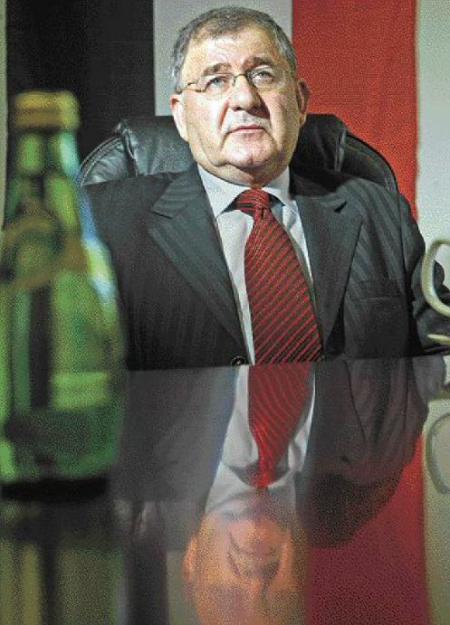
Saturday, July 12, 2008 | Chris Cobb
Our experiences with multiculturalism, federalism, power sharing, just a few of the role models, Iraqi minister says.
Canada's political system and social structure are role models for Iraq as it re-builds into a democratic, multi-cultural society, a leading Iraqi government minister said in an interview this week.

"Canada is an important country," said Iraqi Water Resources Minister Latif Rashid. "Iraq can learn a lot and gain a lot from Canada and the Canadian experience of federalism, power sharing, multiculturalism and accommodation of languages.
"We are going to learn how you did that -- how do you use two languages in one university and your methods of election.
"All these are important to the process we are going through in Iraq."
Mr. Rashid, a Kurdish engineer who moved back to Iraq from exile in Britain after the U.S.-led invasion five years ago, has been in Montreal and Ottawa this week.
He is meeting with business, political and academic leaders.
Iraq has bought heavy machinery from Canada as part of its effort to re-build its water infrastructure, for which Mr. Rashid's ministry has a $1-billion annual budget.
During his visit, which included lectures at Carleton University and the University of Ottawa, he has also been discussing plans for academic and student exchanges.
"We want to learn from technical specialists at your universities," he said, "and have exchanges of academics and, overall, engage Canada in the future development of Iraq."
Canada also has much that it can teach Iraq about water management, added Mr. Rashid.
"Whether it's new methods of irrigation, storage or distribution, we have things to learn. In Canada, you are managing lakes, rivers, reservoirs and you have things to teach about that."
"Iraq wants a better and much stronger relationship with Canada," he said, "and we want to see a wider presence of Canadians in Baghdad.
"We certainly want a permanent Canadian mission in Baghdad." Canada's Iraq-related diplomatic activity is currently handled from the Canadian Embassy in Amman, Jordan.
The security situation in Iraq has improved significantly during the past two years, claimed Mr. Rashid.
"I am not saying Iraq is perfect," he said, "but two years ago you could not send your children to school and you couldn't go to work.
"My staff would phone me and say, 'don't come to the office today. There is shooting and car bombs.'
"Today, universities, schools and hospitals and shops are operating normally. Ordinary people are walking around until 12 o'clock at night in most parts of Iraq," he said.
"Yes, there are still terrorist organizations and terrorist cells, but there is no comparison between now and even a year ago when I was frightened Iraq was headed to toward civil war, but that fear has finished."
Iraq still lacks a strong internal security system, and until it has fully developed its army and police forces the American-led multi-national force -- or at least a portion of it -- is needed.
"Our security system is better than it was," he said, "but you can't build it overnight."
The strengthening Iraq oil-based economy, and the lessening of violence, has boosted the national economy above the levels of most neighbouring countries, Mr. Rashid added.
And Iraqis who fled the country to escape insurgent violence are now returning home.
The country's national budget, which slumped to $5 billion immediately after the invasion, is now around $100 billion.
"Iraqis have decided to live with one another with a new constitution in a federal state and in recognition of each other," he said.
"The population, especially the Sunni population, has turned against terrorism and al-Qaeda.
"The Iraqi people are tired of killing."


